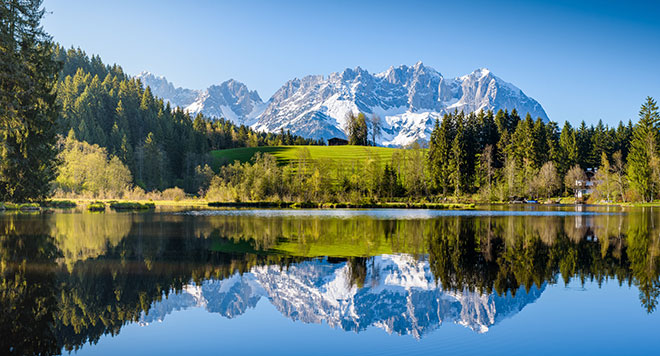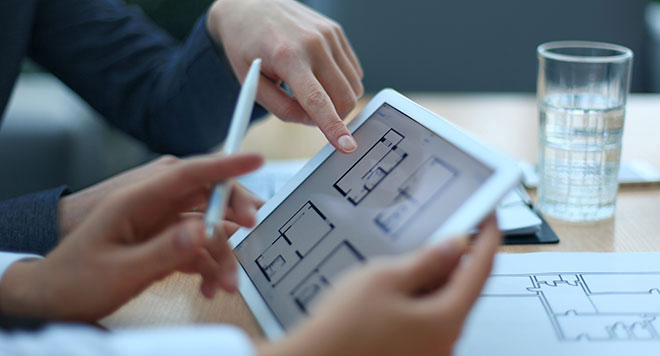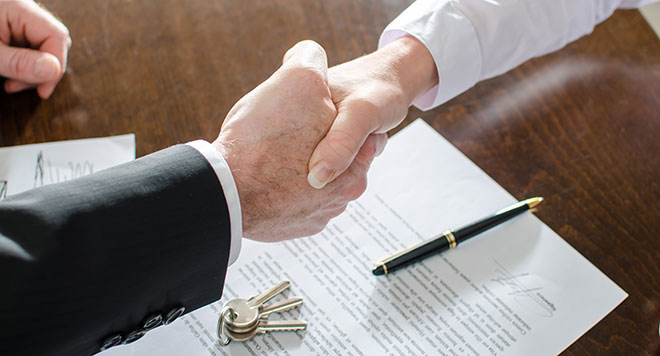
What are the buying options in Austria?
Second Home
If you prefer not to rent your property, we are able to offer a small selection of properties that have a rare “second home” permission, which means you have no obligation to rent.
Fully Managed
Some of the larger developments offer a fully managed rental service where the developer teams-up with a tour operator who will efficiently handle all your rentals when you are not using your property. They pay you a quarterly or monthly income and handle all your bookkeeping. Sometimes tour operators offer a guaranteed rental return for a fixed period of time.
Flexible Renting
If you want to maximise the personal use of your property and are looking for complete flexibility, then a property with a flexible rental option is perfect. You can either rent your property through a local tour operator or rent privately. If you chose a tour operator, they advertise your property, manage your online bookings, meet and greet your guests, and deal with the laundering and cleaning of your property. If you chose to rent privately, you can make your own web site to advertise your property, or advertise on a holiday rental portal, or you can rent privately to friends and family.
Can EU Citizens buy property in Austria?
Yes, EU citizens can buy a holiday property in any of Austria’s nine Provinces and the process is very straightforward.
Can Non-EU Citizens buy property in Austria?
Although it is technically possible, it is extremely rare for properties in Austria to be available for non-EU citizens.
A few properties have a very rare “second home” status and are available for non-EU but they are only found in small villages in the Salzburg province.
These are the only properties we currently have available for non-EU citizens
Almost all properties are only available to EU citizens, so if you do not have an EU passport, look to buy in France or Switzerland instead.
Can Non-EU Citizens buy property in Austria in the name of a company?
It is not possible for non-EU citizens to get around the rules by buying in the name of a company. Non-EU-citizens may only purchase in the name of an EU Company if over 50% of the shareholders are resident in the EU.
Can Non-EU Citizens buy property in Lech or the Tyrol?
It is difficult even for Austrians to buy in Lech or St Anton (apart from a pure investment rental property)> It not possible for non-EU citizens to buy a property in The Tyrol, Vorarlberg, or Salzburg Provinces.

What is the purchase process for buying property in Austria?
- The process of buying a property in Austria is very straightforward. The notary will act on behalf of both the purchaser and the vendor. The notary will draw up the deed of sale and all the documents required to transfer the legal ownership.
- When buying a property, both the purchaser and the vendor are required to attend the notary’s office to sign the deed of sale in his presence.
- The buyer will need to take the power of attorney to either a Notary Public (not a solicitor) in their country of residence to have their signature witnessed and (in the UK) the Notary Public will send the document off to the foreign office to have it ‘legalised’. Alternatively, documents can be signed and legalised at the same time if taken to the Austrian Embassy.
What are the purchase costs when buying a property in Austria?
Purchase costs for buying a property in Austria are approximately 6.6% of the gross purchase price. There is an agency commission of 3% net plus 20% VAT making an approximate total of 10%. The notary fees are 1.5 to 2% net plus 20% VAT and the court costs, administration fees are around 400 EUR. The purchaser will be required to pay the notary fees after the contract of sale has been signed.
Fees are calculated as follows:
- Purchase Tax ‘Stamp Duty’ – 3.5% of the gross price
- Registration in the Land Registry – 1.1% of gross price
- Notary’s fees – between 1.5 and 2% of gross price
- Court costs, administration fees – approx. 150 euros
What construction guarantees are there?
All new build Austrian property is covered by a 30-year building guarantee against all hidden defects and developers will usually guarantee building fixtures for two years.What are the payment stages when buying property in Austria?
New build properties are paid for in stages and all payments are made through the notary who acts as trustee for your money. The instalments are made into a client account and the payments for each stage are only released to the developer when an independent surveyor has inspected each stage and officially signed it off with the notary.
Purchase payments will typically be something like this:
- 15% at start of building works
- 35% on completion of the shell and roof
- 20% on completion of plumbing and electrical installations
- 12% on completion of the façade & windows
- 12% on completion of the property
- 4% on hand over of keys
- 2% after three years (or after developer providing a bank guarantee or insurance to the purchaser)
What is the construction schedule?
Construction in the Alps only takes place in the summer months, as during the winter months the ground is frozen and covered in snow. Because of this, Alpine developers optimise their build schedule and usually build and complete an apartment building or several chalets in one summer season.
The advantage to buyers is that during the winter they can sign their purchase contract to secure their property but will usually not have to start making stage payments until construction starts in the spring.
Can a foreigner get a mortgage to buy property in Austria?
Yes. Austrian banks will fund up to 60% of the purchase price and usually the loan period will be between 15 and 25 years. It is also possible to take fixed rate mortgages for 1 or 5 years.

What are the benefits for EU citizens of buying a property in Austria in the name of a company?
- Purchase a property with multiple partners – If you want to buy a property with more than two owners then buying in the name of a company is a good option.
- Tax-free ownership transfers – Ownership can be transferred tax free (to children or grandchildren, for example) by a transfer of shares.
What are the costs of buying in the name of a company in Austria?
The set-up costs for an EU company start at around €2000 and you will be required to pay a yearly maintenance fee of around €1000.
How much can I expect to receive in rental income?
Across the French, Swiss and Austrian Alps, rental yields tend to vary between 3% and 5% depending on factors such as the resort, the location of the property within the resort (ski in, ski out properties get premium rents), and the quality of the property.
What are the annual running costs of owning an Austrian property?
The expenses of a development of chalets or an apartment building are usually divided up proportionately between the owners, according to the size of their property.
As a rough guide the basic running costs for a property are around 5 – 7 euros per m2/month. This would cover the cost of snow clearance, rubbish removal, water rates, building insurance, and local property taxes, cleaning and lighting for any communal areas, and maintenance of the gardens etc.
These expenses would not include your own personal usage of heating and electricity as this varies depending on how much you use the property.
If you buy a property with extensive leisure facilities such as swimming pools and spas then these costs could increase to around 7-11 per m2/month.

Do I have to rent my Austrian property?
Most holiday homes in Austria have rental obligation so the owner must rent it. In most properties some personal use is permitted but it can be quite restricted in some developments.
Tax advantages - how do I get the VAT back?
Renting your new-build property can have tax advantages as it is possible to reclaim part, or all of the VAT on your purchase, giving a discount of up to 20%. To be eligible for this VAT discount you would be expected to rent your property professionally and you will need to show an overall profit over a period of 20 years.
To reclaim the tax you will need to register for VAT, and in some cases pay the gross price and then claim the tax back. This usually takes two to three months and you will be appointed a tax advisor to help you with this. It is possible to obtain a bridging-loan for the VAT if required. Sometimes the developers will have pre-arranged everything for you so you will only need to pay the net price.

What annual taxes will I have to pay?
Everyone who rents a property in Austria – no matter if VAT rebate or not – needs to declare the income at the end of the year and pay income tax if the income is above the tax-free allowance.
The interest you pay on your mortgage can be written off against rental income profits. You can also write off 10% of the cost of your furniture package per year as depreciation against your rental income.
For people who don’t have other taxable income in Austria the income tax exemption per person/year is only 2,330 euros. Therefore, the tax-free allowance for two would be 4,660 euros.
Above a certain rental income per year (33k) it is mandatory to register for VAT. This is often the case if clients own more than one property – even if these properties are bought at the net or gross price. If the yearly rental income is below 33k and if the property was not bought at the net price there is no VAT to be paid on the rental income.
We always recommend a choice of local tax advisors to help with your tax returns. The tax advisor will charge a one-off fee to set up your registration (please contact advisors directly for prices) and annual tax returns will cost in the region of 600 – 900 euros per year.
Tourism Tax:
When you rent your property you will need to charge your guests tourism tax for the nights they spend in your property. The rate of tax varies from resort to resort but as a rough guide it is somewhere between 1 and 3 euros per night per person for each guest over the age of 14 years.
Capital Gains Tax:
Capital Gains Tax of 30% will apply to any profits you have made by selling a property, but some deductions may be made when calculating the profit.
Inheritance Tax:
There is zero Inheritance tax in Austria as was abolished in 2008.

